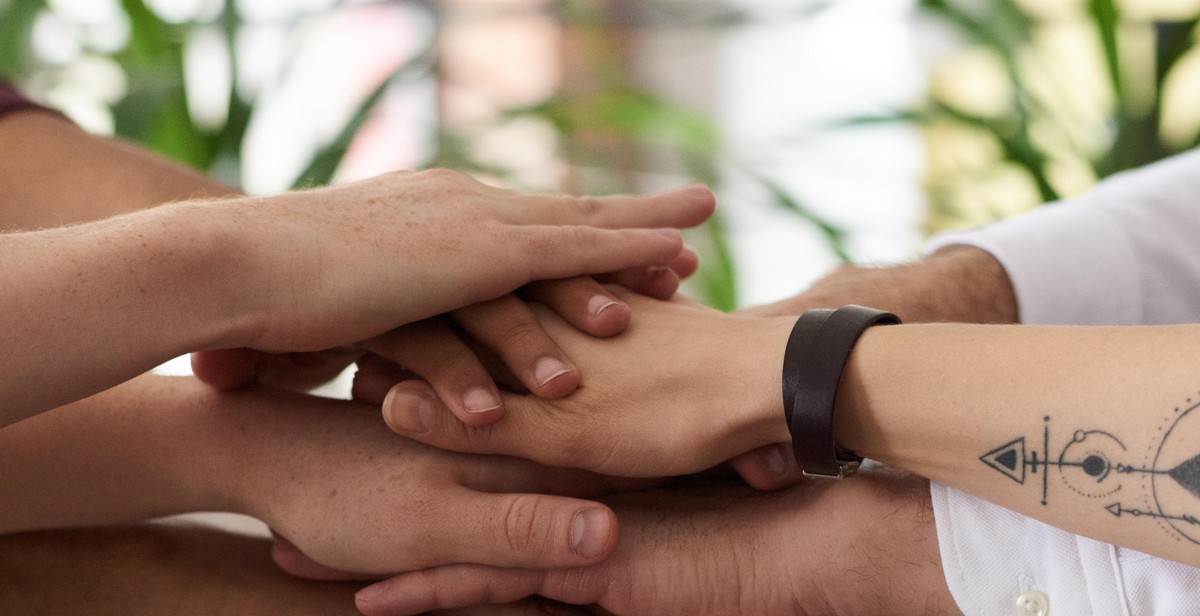Introduction: Why Trust and Honesty are Important in a Relationship?
Trust and honesty are the foundation of any healthy relationship. Without these two essential qualities, a relationship can quickly become strained and eventually fall apart. Honesty and trust are not just important in romantic relationships, but they are also crucial in friendships, family relationships, and even in the workplace.
When trust and honesty are present in a relationship, it creates a safe and open environment where both partners feel comfortable sharing their thoughts, feelings, and vulnerabilities. This type of communication builds a deeper connection between two people, leading to a stronger and more fulfilling relationship.
The Consequences of a Lack of Trust and Honesty in a Relationship
On the other hand, a lack of trust and honesty can lead to a breakdown of communication, misunderstandings, and even betrayal. When one partner feels like they cannot trust the other, it can lead to feelings of insecurity, jealousy, and resentment. This can create a toxic environment that is difficult to repair.
If you want to foster a healthy and long-lasting relationship, it is essential to prioritize trust and honesty in your communication with your partner. In this article, we will explore some key strategies for building and maintaining trust and honesty in your relationship.

Effective Communication Skills to Foster Trust and Honesty
Communication is the foundation of any healthy relationship. Without effective communication skills, it’s difficult to build trust and honesty with your partner. However, communication isn’t just about talking; it’s also about listening and understanding. Here are some effective communication skills that can help foster trust and honesty in your relationship:
Active Listening
Active listening is the ability to fully concentrate on what your partner is saying, without interrupting or thinking about your response. It’s important to give your partner your undivided attention, to show that you value their thoughts and feelings. When actively listening, make sure to:
- Make eye contact
- Nod or provide verbal cues to show you’re listening
- Repeat back what your partner said to ensure you understood correctly
Effective Communication
Effective communication is about expressing yourself clearly and assertively, while also being respectful of your partner’s thoughts and feelings. It’s important to use “I” statements instead of “you” statements, to avoid blaming or accusing your partner. When communicating effectively, make sure to:
- State your needs and feelings clearly
- Avoid interrupting or talking over your partner
- Be open to compromise and finding a solution together
Non-Verbal Communication
Non-verbal communication can often speak louder than words. Pay attention to your body language and tone of voice when communicating with your partner. When using non-verbal communication, make sure to:
- Maintain a relaxed and open posture
- Use a calm and respectful tone of voice
- Make appropriate facial expressions to match your words
Conclusion
By using these effective communication skills, you can foster trust and honesty in your relationship. Remember that communication is a two-way street, and it’s important to both talk and listen to your partner. With practice and patience, you can build a strong and healthy relationship based on open and honest communication.

Building Trust in a Relationship
Trust is the foundation of any healthy relationship. Without trust, a relationship cannot thrive. Building trust takes time, effort, and commitment. It involves being open and transparent, consistent, and reliable. Below are some key ways to foster trust and honesty in a relationship:
Being Open and Transparent
Being open and transparent means being honest and forthcoming about your thoughts, feelings, and actions. It means being willing to share your vulnerabilities and fears with your partner. It also means being willing to listen to your partner’s concerns and feelings without judgment. When you are open and transparent with your partner, you create a safe space for honest communication and build trust.
Consistency and Reliability
Consistency and reliability are essential for building trust. It means following through on your promises and commitments. It means showing up when you say you will and being there for your partner when they need you. When you are consistent and reliable, you demonstrate your commitment to your partner and build trust over time.
Trust-Building Exercises
Trust-building exercises can be a helpful way to strengthen trust in a relationship. These exercises can include sharing your deepest fears and desires with your partner, practicing active listening, and working together to solve problems. Trust-building exercises can help you and your partner build a deeper understanding of each other and create a stronger bond.
- Sharing your deepest fears and desires with your partner
- Practicing active listening
- Working together to solve problems
Overall, building trust in a relationship takes time, effort, and commitment. By being open and transparent, consistent and reliable, and practicing trust-building exercises, you can foster trust and honesty in your relationship and create a strong foundation for a healthy and fulfilling partnership.

Honesty is the Best Policy
Honesty is the foundation of any healthy relationship. It is the key to building trust, understanding, and respect between partners. Without honesty, a relationship can quickly become toxic, leading to misunderstandings, hurt feelings, and even the breakdown of the relationship.
Why Honesty is Important
Honesty is important because it creates a safe and secure environment for partners to communicate openly and freely. It allows partners to express their thoughts and feelings without fear of judgment or criticism. When partners are honest with each other, they can work together to resolve conflicts and overcome challenges.
Additionally, honesty is essential in building trust. When partners are honest with each other, they are more likely to trust each other. Trust is critical in any relationship, as it creates a sense of security and stability.
The Dangers of Dishonesty
Dishonesty can be incredibly damaging to a relationship. When partners are not honest with each other, it can lead to misunderstandings, hurt feelings, and even betrayal. Lies can quickly spiral out of control, leading to a breakdown of trust and communication.
Dishonesty can also lead to a lack of respect between partners. When one partner lies to the other, it can be seen as a sign of disrespect and can damage the relationship’s foundation.
How to Be Honest
Being honest in a relationship can be challenging, especially when it comes to difficult topics. However, there are some strategies that partners can use to foster honesty in their relationship.
- Be open and transparent about your thoughts and feelings.
- Listen actively to your partner and try to understand their perspective.
- Avoid being defensive or dismissive when your partner shares their thoughts or feelings.
- Apologize when you make a mistake or if you have been dishonest.
- Take responsibility for your actions and be accountable for your mistakes.
By following these strategies, partners can foster honesty in their relationship, creating a strong foundation of trust, communication, and respect.
| Key Points: |
| Honesty is the foundation of any healthy relationship. |
| Honesty creates a safe and secure environment for partners to communicate openly and freely. |
| Dishonesty can lead to misunderstandings, hurt feelings, and a breakdown of trust and communication. |
| Strategies for fostering honesty include being open, listening actively, avoiding defensiveness, apologizing, and taking responsibility. |

Overcoming Obstacles
Dealing with Infidelity
Infidelity can be a major obstacle in any relationship. If you or your partner has been unfaithful, it can be difficult to rebuild trust and move forward. However, it is possible to overcome this obstacle with the right mindset and approach.
First, it’s important to acknowledge the hurt and pain that infidelity can cause. Both partners should be willing to communicate openly and honestly about their feelings and concerns. It may be helpful to seek the guidance of a therapist or counselor to work through these emotions and develop a plan for moving forward.
Second, the partner who was unfaithful must take responsibility for their actions and show genuine remorse. This may involve making amends, such as ending the affair, cutting off contact with the other person, and being transparent about their whereabouts and activities. It may also involve making changes to address the underlying issues that led to the infidelity, such as seeking individual therapy or working on communication skills.
Finally, both partners must be committed to rebuilding trust over time. This may involve setting boundaries, being patient and understanding, and demonstrating consistent honesty and reliability. It may also involve seeking support from friends and family, as well as engaging in activities that strengthen the bond between partners.
Rebuilding Trust After a Betrayal
Even without infidelity, trust can be broken in a relationship through lies, deceit, or other betrayals. Rebuilding trust takes time and effort, but it is possible with the right approach.
First, the partner who broke trust must take responsibility for their actions and show genuine remorse. This may involve apologizing, making amends, and being transparent about their actions and intentions moving forward.
Second, both partners must be willing to communicate openly and honestly about their feelings and concerns. This may involve seeking the guidance of a therapist or counselor to work through any underlying issues or conflicts.
Third, it’s important to set clear expectations and boundaries moving forward. This may involve establishing rules or guidelines for behavior, as well as being patient and understanding as trust is slowly rebuilt.
Finally, it’s important to focus on the positive aspects of the relationship and engage in activities that strengthen the bond between partners. This may involve spending quality time together, engaging in shared hobbies or interests, or simply expressing appreciation and gratitude for one another.

Conclusion
Building trust and fostering honesty in a relationship is a process that requires effort and commitment from both partners. It involves open communication, active listening, and mutual respect. By following the keys to healthy communication outlined in this article, couples can strengthen their bond and create a foundation of trust that will endure over time.
Remember that trust is not something that can be demanded or forced. It is earned through consistent actions and behaviors that demonstrate integrity and reliability. Honesty is also crucial, as it allows both partners to feel secure in the knowledge that they can rely on each other.
If you are struggling to build trust and honesty in your relationship, don’t hesitate to seek professional help. A therapist can provide valuable guidance and support as you work through your issues and learn new communication skills.
In summary, fostering trust and honesty in a relationship requires patience, understanding, and a willingness to put in the work. By prioritizing healthy communication and demonstrating your commitment to your partner, you can create a strong and lasting bond built on mutual trust and respect.
